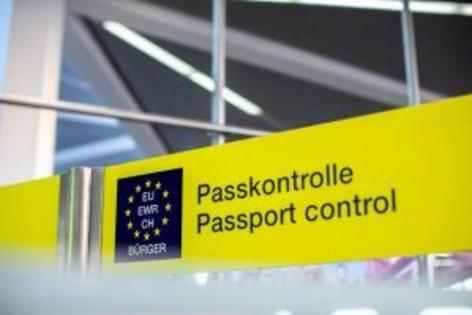Tariffs And Visas Add To The Cannabis Industry’s Misery
Published in Cannabis Daily
Tariffs And Visa Add To The Cannabis Industry’s Misery, squeezing profits, talent, and innovation nationwide.
The U.S. legal cannabis industry has been suffering over the last two years under an indecisive federal government — and now it’s getting squeezed from two unexpected angles: Tariffs and Visas add to the cannabis industry’s misery. For businesses and workers alike, what once looked like a budding success story is showing greater turbulence.
The first punch comes via international trade policy. Many cannabis-adjacent businesses — from vape cartridge manufacturers to packaging suppliers and cultivation equipment importers — rely heavily on overseas inputs, especially from China. Recent U.S. tariffs on Chinese goods — in some cases raising rates to 30–50% or more — have forced costs up, and the ripple is hitting weed-industry players hard. According to one industry analysis, the cost to produce a typical vape unit is rising by a few cents apiece because of tariffs on hardware and packaging. With thousands of units produced monthly, it adds up quickly. Some companies are absorbing the hit, but others expect the increases to eventually land on consumers — or push buyers back into illicit markets.
What makes this especially tough for cannabis businesses: margins are already razor-thin, regulatory burdens are high, and the domestic supply chain just isn’t built out. Switching suppliers takes time; finding U.S.-based manufacturers meeting regulatory compliance is even harder. Now consider the human side of the workforce. The immigration and “visa” side of the equation rarely gets front-page attention in cannabis, but it’s quietly important. The federal government still classifies cannabis (marijuana) as a Schedule I controlled substance, despite many states legalizing it. That creates complications for foreign nationals trying to work in or invest in cannabis-related businesses. For example, non-U.S. citizens on visas or applying for visas risk denial or revocation if they have past cannabis use, or if they’re working or investing in the cannabis industry—even when it’s legal in the state. This means companies would otherwise recruit international talent, or rely on global investment, may find restrictions. At the same time, broader visa policy changes are making the environment more uncertain. Recent shifts on H-1B visas, fees, and work permits are complicating cross-border mobility for skilled workers. The combination of higher input costs and a more restrictive workforce/immigration pipeline is a double whammy for cannabis entrepreneurs. It means: Higher retail prices or slimmer marginsSupply chain disruption (imports delayed, domestic alternatives still catching up)Caution around hiring international talent or tapping global investment due to immigration uncertaintyPotential slowdown in growth or innovation as more resources are diverted to copingFor millennial cannabis consumers and industry watchers: yes, you might start seeing slightly steeper prices or less product innovation. And for workers and founders: borders, visas, and trade policy are no longer side conversations — they’re central to whether the business thrives. In short: the cannabis boom isn’t immune to macroeconomics and immigration policy. If anything, it’s among the more vulnerable sectors, since it straddles imports, regulation, and workforce mobility all at once.
The Fresh Toast is a daily lifestyle platform with a side of cannabis. For more information, visit www.thefreshtoast.com.
























Comments